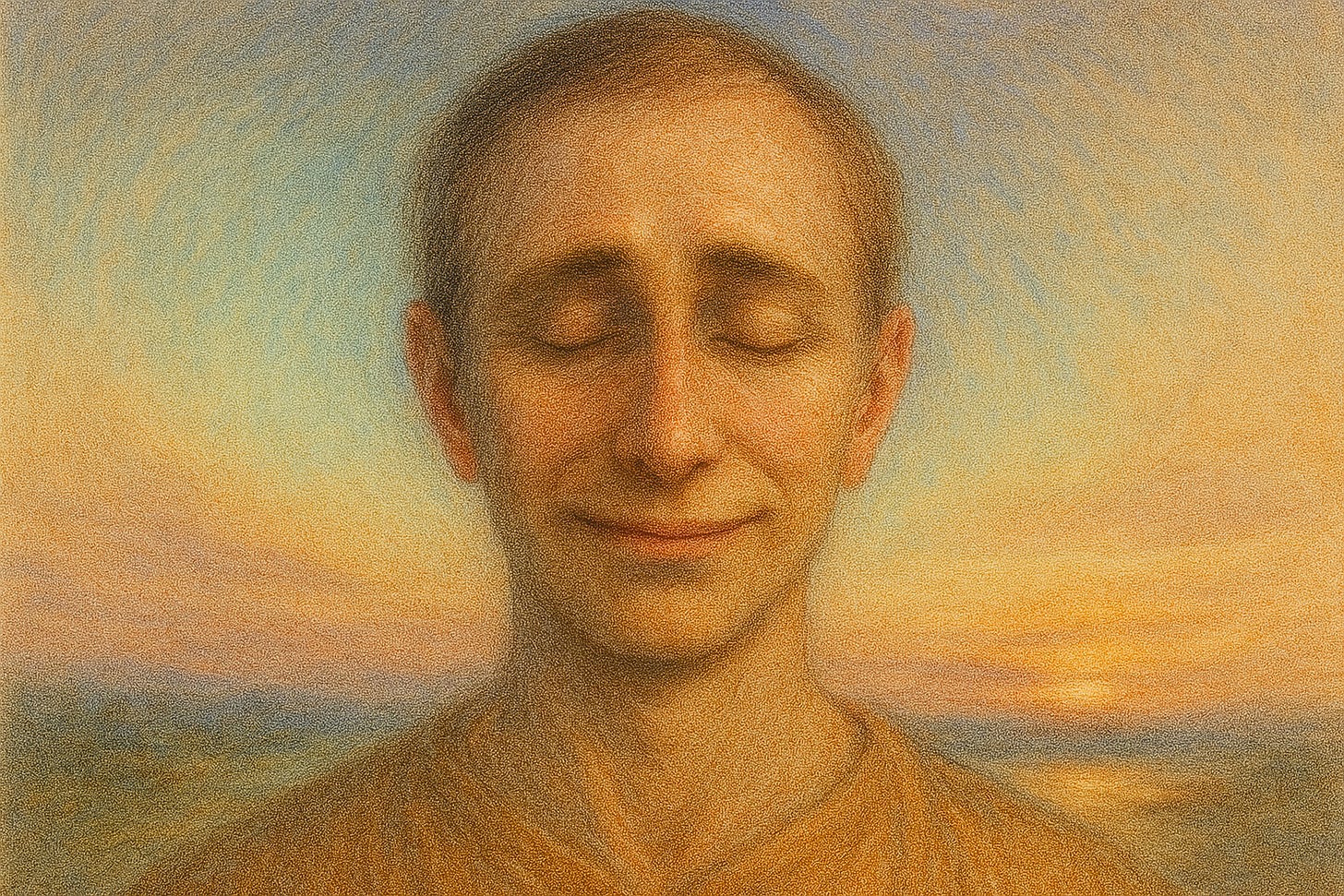Your Ego Is Ruining Your Life
Why letting go of it might be the most important spiritual act you’ll ever undertake
Ego is the veil between humans and God.
—Rumi
In a world that is sadly obsessed with control, image, and personal achievement, a “healthy ego” is often misunderstood as a necessary part of success. But what if the exact opposite is true? What if the very mechanism that seeks to elevate and protect you—your ego—is in fact the main source of most of your anxiety, conflict, and dissatisfaction?
This isn’t just some philosophical musing. It’s a lived reality, observable in your quotidian interactions, mental monologues, and cultural conditioning. The ego, when unchecked, becomes a mirage that distorts your perception of yourself and others. Like the symbiote "Venom" from the Spider-Man and Venom film franchises who latches onto a host (like Eddie Brock) and amplifies his aggression, pride, and impulsivity, the ego feeds on status, comparison, and control. It is fragile and defensive, always hungry for validation and terrified of insignificance.
And it is ruining your life.
The Nature of the Ego
By “ego,” I’m not referring to self-respect or confidence, but to that internal mechanism that insists on being separate, superior, and in control. The ego wants to dominate situations, win every argument, secure admiration, and insulate itself from all discomfort or uncertainty.
It’s that voice in your head that says, “Wrong!” or “I’ll get even,” or “What will people think?” It thrives on being right, being seen, being someone.
But that voice is rarely aligned with reality. It’s reactive. It’s fearful. And worst of all, it’s never satisfied.
Surrendering Control
The ego's primary illusion is control. It clings to the idea that if we manage our environment, people, and outcomes precisely, we will find peace. But peace doesn’t come from control. It comes from alignment—with truth, with humility, and especially with the present moment.
In truth, we perceive only a narrow sliver of the vast reality around us. Our thoughts, projections, and desires are shaped by filters we didn’t choose and can barely see. Trying to control everything from this limited vantage point is not only futile—it’s exhausting.
The beginning of wisdom is the recognition of how little we actually command. Surrender, then, is not weakness. It’s clarity. It’s the conscious decision to step out of the ego’s narrow domain and allow a deeper intelligence—call it flow, providence, or God—to guide the path.
The Virtue of Humility
Humility is not self-deprecation. It is the recognition of our place in the vastness of existence. To be humble is to understand that we are not the center of the universe—and that this is a source of relief, not diminution.
A humble person is not paralyzed by his or her smallness. Rather, they are empowered by their connectedness to something greater. When you relinquish the need to be exceptional (admittedly very tough), you become receptive: to beauty, to other people, and to the truth.
Joy begins where the ego ends.
The Strength of Modesty
Modesty, like humility, is often mistaken for weakness. But in reality, it is a subtle strength.
To be modest is to be clear-eyed about both your capacities and your limits. It is to live without the desperate need for attention and recognition, without posturing or pretense. Modesty reflects a settled interior life—one that is not reliant on external (and often fickle) applause to feel real, valuable, or whole.
This kind of groundedness is rare in a world driven by performance and self-promotion. And it is deeply attractive—not in the flashy sense, but in the way rivers attract roots and silence attracts peace.
The Discipline of Gratitude
If the ego thrives on lack, then gratitude is its undoing.
The ego says, "I’m always getting screwed over. I’m not enough. They owe me. I need to be more."
Gratitude says: I have. I am. This is great as it is.
To consistently orient yourself toward gratitude is not simply a mood booster—it’s a radical spiritual discipline. It reorients your inner compass from craving to contentment. It trains the mind to recognize sufficiency in the present moment.
The more grateful you are, the less the ego can dominate your experience.
Life Without Ego
Imagine a life freed from the constant need to prove yourself.
A life without petty envy, comparison, or brooding.
A life where joy arises naturally, not as a result of winning, but of being.
This isn’t some naive dream. It’s what emerges when you decide to take the keys from your ego. You step onto the path towards clarity, stillness, and alignment.
The ego is a toxin—but it’s not the final word. Its antidotes are simple and ancient:
Humility
Modesty
Gratitude
They are not abstract ideals. They are daily practices. They are attitudes of the heart that can be cultivated slowly, even imperfectly, until they reshape us from the inside out.
You don’t need to destroy your ego. You only need to stop feeding it.
And when you do, something lighter, truer, and freer will take its place.





You must first die to self to be reborn!